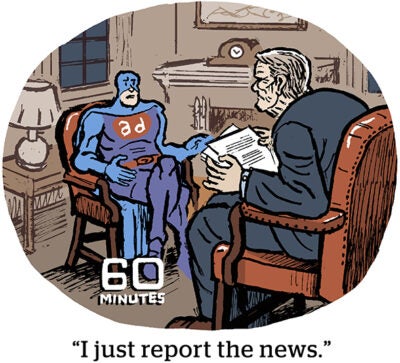Here’s today’s AdExchanger.com news round-up… Want it by email? Sign up here.
Amazon Wins Again
Last week, ecommerce market research company Marketplace Pulse disclosed that Amazon advertisers can serve ads directly on Facebook and Instagram using Amazon in-app checkout.
This week, The Information reports Amazon has landed a similar partnership with Snapchat. Oh, and Amazon also launched a Shopify app so merchants can integrate “Buy with Prime.”
Launching a Shopify app is a strong troll move, but the social partnerships are powerhouse plays for Amazon Advertising.
For instance, Meta’s payment partnership with Shopify is weighted in Meta’s favor. Facebook and Instagram know which products are sold on their respective platforms, when carts upsell, sales attached to certain search terms and more. Shopify doesn’t send user-level data, but it provides more and better signals Meta and Snapchat use to optimize.
Amazon’s social partners – it signed a similar deal with Pinterest in April – see which users are Prime members and receive up-to-date pricing.
But the Amazon checkout partnership doesn’t help social platforms improve their own optimization. Amazon Advertising simply gets better at optimizing their media.
It’s a key difference – and it means that, as Amazon Advertising improves its efficiency as an advertiser on Facebook, Instagram and Snapchat, the social apps only gain small CPM increases. Amazon retains all the value of its conversions.
Hard for Meta to complain, though. It’s not like Meta isn’t also a black box.
Pressed For Premium
Nobody can agree on what “premium TV” really means.
So the Video Advertising Bureau and Comcast-owned FreeWheel released a checklist of what counts as premium. The list is based on surveys of several hundred marketers, agency execs and consumers, Ad Age reports.
Buyers think of premium as long-form, episodic content, whereas user-generated content is considered to be the “least premium.” Advertisers see linear TV and live streaming as the “most premium.”
Transparent brand safety verification through third-party tracking and access to log-level ad exposure information are also listed as must-haves for premium video inventory. But these disclosures are often missing or insufficient in digital programmatic buys, which may explain why the VAB/FreeWheel report considers video-on-demand to be less premium than traditional TV.
But the more that CTV goes the way of programmatic, the less likely it is streamers and CTV marketers will accept an assertion that programmatic inventory is less premium than direct-sold.
Think of this initial checklist as a conversation starter, not a final product, the VAB’s EVP Danielle DeLauro says.
It’s likelier a conversation ender with YouTube, though. Don’t expect this to settle the “what is premium” debate.
Seeing Green Grocers
Kroger Precision Marketing (KPM), the grocer’s data-driven media business, announced a new feature for its self-serve platform this week that, for the first time, will decouple its sales data from media sales.
One problem (and opportunity) for retail media sellers is that their data comes at a very high price. So high, in fact, that retailers sometimes charge streaming CPMs for banner display campaigns running across who-knows-what inventory on the open web.
For now, Kroger’s feature only works with The Trade Desk, although KPM implies in its release that other DSPs may be added down the line. KPM does specify, however, that it will enable all the usual brand safety and suitability tags.
Another retail media issue is that retailer networks are deterministic, which means they target individuals without much concern for what those people are reading or watching. That’s a recipe for disaster on the web.
Many sellers and retail ad tech vendors with no real value can only exist because there’s still precious little transparency in retail media.
Big-name retailers like Kroger and Albertsons (will two soon become one?) are adopting open programmatic more and more to prove they have scale and ROI.
But Wait, There’s More!
Ad industry watchdog Check My Ads petitions the FTC to investigate Twitter (X, whatever) over running unlabeled advertisements. [Wired]
Yahoo Search will begin rolling out in the early weeks of 2024. [Search Engine Land]
BuzzFeed shifts its monetization strategy to focus on selling individual brands rather than across its network and promotes Jessica Probus to publisher. [Adweek]
How Media.Monks turned in-housing into a specialty service. [Digiday]
You’re Hired!
Contextual ad company Seedtag hires Eric Lebeau as CFO and Nick Timms as SVP of strategy. [release]
B2B agency The Imaginarium adds former Bombora exec and Bizo co-founder Mark Dye as chief strategy officer. [release]
Flash, a media platform for parking and EV charging stations, hires Eric Levine as chief growth officer. [release]


















